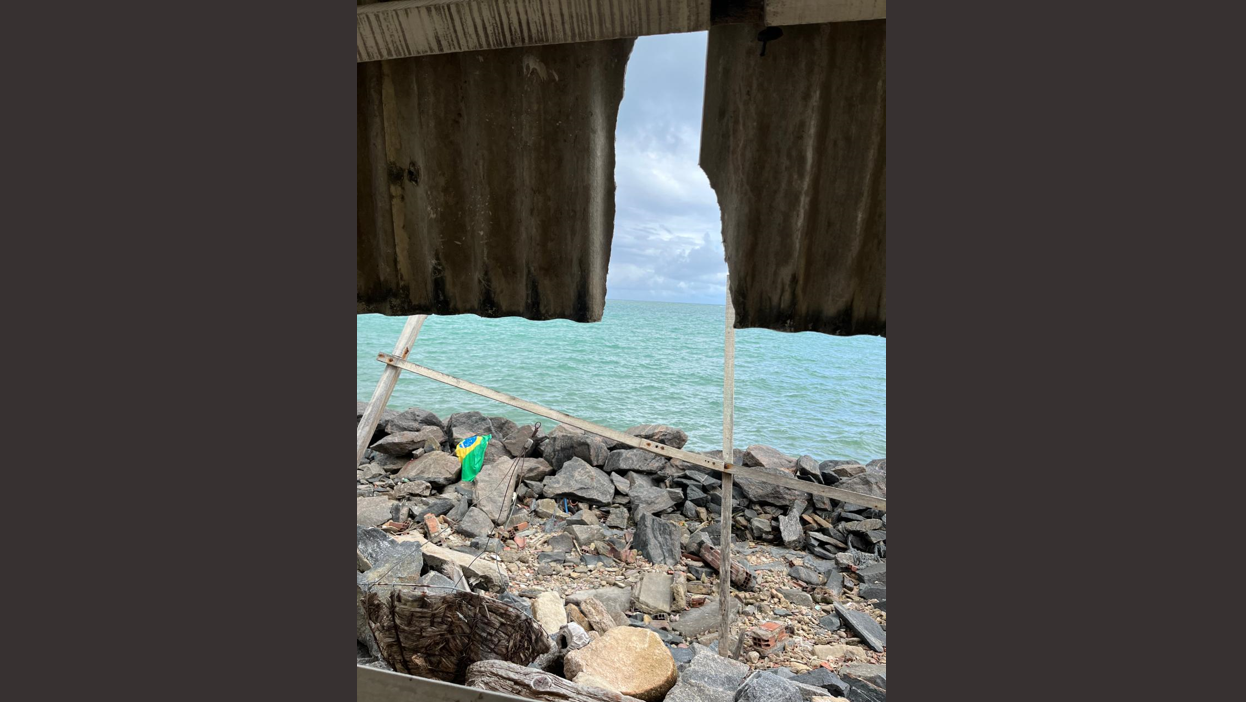
Advancing Health Economics and Climate Research in Brazil and the UK
(Picture: Rising sea levels due to climate change impacting the coast of Northeast Brazil. Small beach businesses have been "swallowed" by the waters at Pau Amarelo Beach in Paulista, Pernambuco)
Climate change has a greater impact on the poorest countries and individuals. It adversely affects health, increases healthcare costs, and exacerbates inequalities. Globally, climate change is projected to cause 250,000 additional deaths annually. Brazil is a country highly vulnerable to the consequences of climate change. Climate change events have impacted the spread of diseases, caused large outbreaks of water and vector-borne diseases, and increased hospitalisation costs and deaths. Also, Brazil's status as one of the most unequal countries in Latin America puts the most vulnerable populations, which include black people, Indigenous communities, and residents of environmentally fragile areas such as informal settlements, at greater risk of the adverse effects of climate change. It is estimated that climate shocks could push between 800,000 and 3,000,000 Brazilians into extreme poverty by 2030, costing US$2.6 billion, or 0.1% of the country’s GDP annually.
Despite the severity of this scenario, there is a lack of evidence on how climate change contributes to increased healthcare costs for families and health systems, exacerbating inequalities in healthcare access, particularly among the most vulnerable populations. Although national datasets on healthcare costs for households and the public health system are freely available, they provide fragmented information, and there has been no effort to integrate different sources of information to develop methodological frameworks targeting the economic impact of climate change on the public health system and families.
This project aims to strengthen health economics and climate change research in Brazil and the UK by developing a methodological framework that will explore the impact of climate change on health system costs, healthcare expenditures for families and inequalities in healthcare access in Brazil.
This research will identify population groups most at risk of high health expenditure, which can inform and reshape social protection schemes and targeted public health interventions. Also, it will strengthen health economics and climate change research in Brazil and the UK. These topics are crucial for building health system resilience, investing resources to prepare for climate change, mitigating its economic impact. This study is the first initiative designed to understand the economic impact of climate change on the public health sector and vulnerable families in Brazil by providing a methodological framework that can be adapted to other countries.
Aims and Objectives
The objectives of this project are to:
- examine the type of data that can be used to establish a national dataset to analyse the economic impact of climate change on the health system, families and patient costs
- develop a methodological framework to investigate how climate change has exacerbated healthcare inequalities and increased costs for the public health system and families
- engage with national stakeholders to promote and sustain health economics and climate change research in Brazil
- engage UK and Brazilian researchers to discuss health economics and climate change research and knowledge exchange.
Noemia Siqueira, Department of Health Sciences
Principal Investigotor
Noemia Siqueira, Department of Health Sciences
ESRC UK-Brazil Global Talent Exchange (Pilot)
Federal University of Pernambuco, Brazil